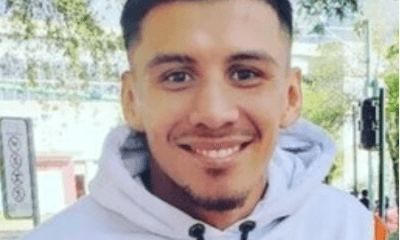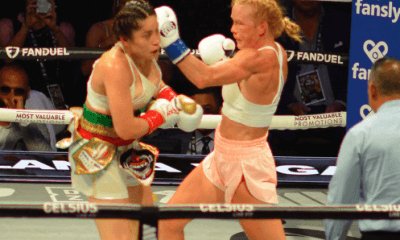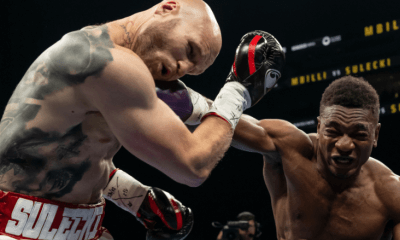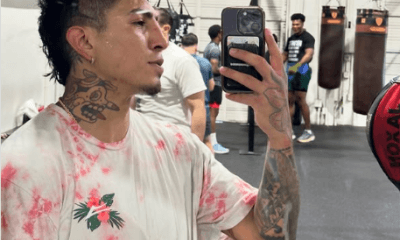Featured Articles
Having Defeated the ‘Big C,’ Daniel Jacobs is Hardly Intimidated by Canelo
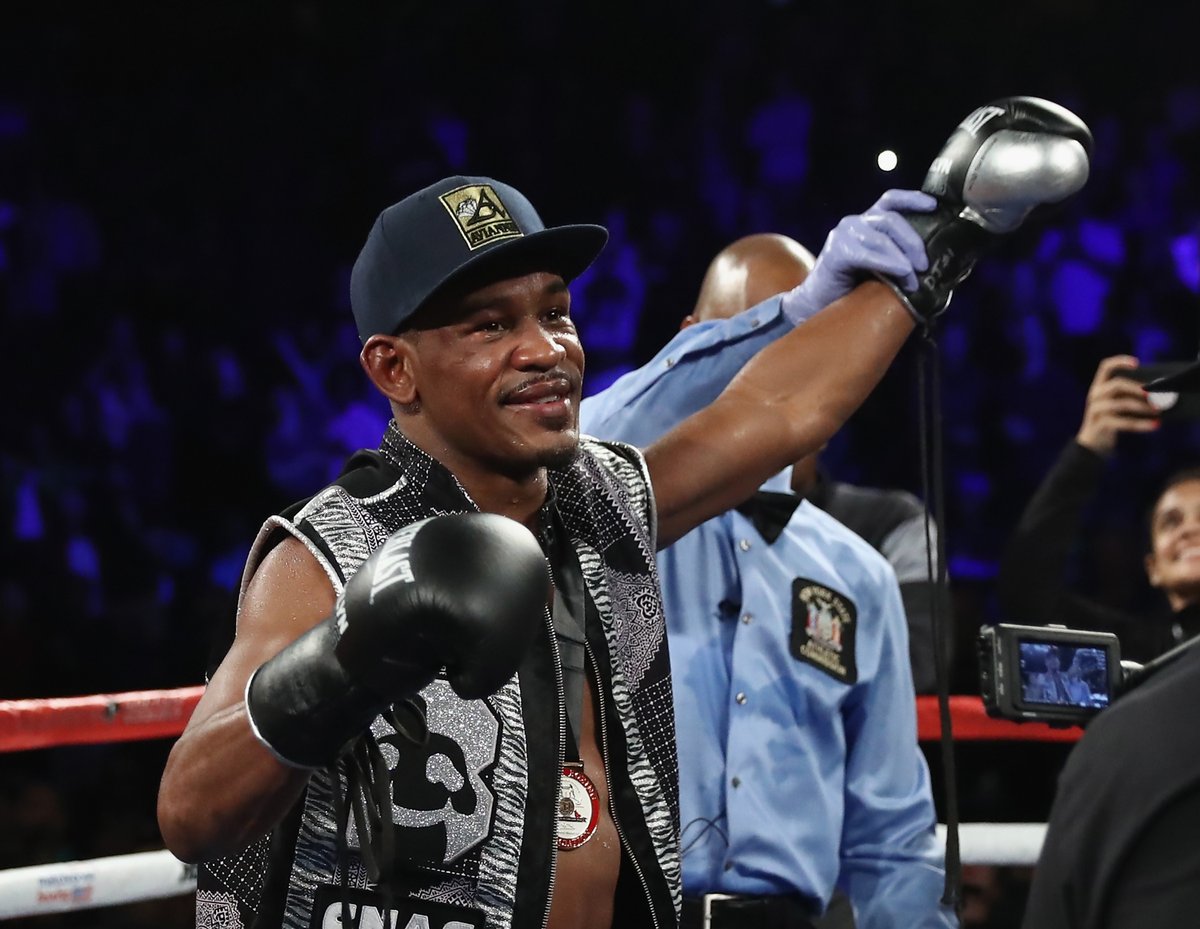
When it comes to sports movies, Hollywood has always been partial to boxing. Aside from fictional characters like Rocky Balboa, biopics, some of which have been quite good if not always factually accurate, have been made about Jim Corbett, Jake LaMotta, James J. Braddock, Rubin “Hurricane” Carter, Chuck Wepner, Micky Ward, Mike Tyson, Roberto Duran, Vinny Pazienza and, of course, Muhammad Ali. There also were a couple of made-for-TV flicks about Rocky Marciano which, sad to say, failed to do the real Rocky justice.
But there are other, seemingly enthralling stories of actual fighters that have yet to get the silver-screen treatment. You’d think someone with clout in La La Land would consider doing something on either or both of the Sugar Rays, Robinson and Leonard. Bernard Hopkins’ tale of his lengthy championship reign after doing hard time in prison would seem to merit a look, as would the inspiring careers of Matthew Saad Muhammad and Arturo Gatti, both of whom made an art form of rallying to win fights they had no business winning.
And if some enterprising producer is looking for a project about a never-say-die scrapper who whipped an opponent scarier than anything he could ever face in the ring, he or she need look no further than the aptly nicknamed “Miracle Man,” Daniel Jacobs, whose career – and earthly existence – was imperiled by osteosarcoma, a rare and insidious form of bone cancer. Eight years ago a large tumor wrapped itself around Jacobs’ spine, paralyzing the then-24-year-old and consigning him to a wheelchair. Told by doctors he likely would never box again and should be thankful that the osteosarcoma, which was malignant, was caught early enough to likely save his life, Jacobs’ response was to buckle down and work hard enough to whip the “Big C,” cancer, as scary a word as a shout of “shark!” is to summertime beachgoers.
After 17 months of physically and emotionally draining treatment, Jacobs resumed a career that many had wrongly assumed was finished. Thus was conferred upon him the inspirational nickname that suggests that the human spirit indeed can be unconquerable, if bolstered by the kind of resiliency, courage and foresight exhibited by the Brooklyn native who already has demonstrated he is up to the task of defying long odds.
But the story of Daniel Jacobs remains a work in progress, a potential movie in search of a rousing ending. Such an exclamation point might or might not be furnished Saturday night at the T-Mobile Arena in Las Vegas, when the now-32-year-old Jacobs (35-2, 29 KOs) puts his IBF middleweight championship on the line against Canelo Alvarez (50-1-2, 34 KOs), who holds the WBA, WBC, lineal and The Ring magazine 160-pound titles.
The bout, which will be streamed internationally by DAZN, is another instance of Jacobs confronting a fearsome “Big C” in the form of Canelo, a -500 wagering favorite (meaning you’d have to bet $500 to win $100) who appears to have everything going for him, with the exceptions of a couple of inches of height and a bit longer reach that certify Jacobs as the marginally larger man. But bigger doesn’t necessarily translate to better, especially inside the ropes, and it will be up to Jacobs to again demonstrate that he is capable of making miracles. When the opening bell sounds, he will be tasked with the formidable challenge of upsetting a highly skilled, laser-focused Mexican national hero during Cinco de Mayo weekend, and in a venue that has become almost as much of a home-field advantage for Alvarez as if the fight were being staged in his backyard in Guadalajara.
“This is a can’t-miss type of fight, a Hall of Famer-type of fight,” said Jacobs, widely regarded as the third-best middleweight in a global landscape where the drop-off after the top two, Alvarez and Gennady Golovkin, is and will continue to be stark until proven otherwise. “When you think about top pound-for-pound fighters today, I’m not sure if I’m on that list. But wherever the fans choose to place me, that’s what I’m grateful for.
“The general consensus is that Canelo is not only the face of boxing, but he is probably pound-for-pound one of the best in the sport. I think a victory over him, a convincing victory, would definitely solidify my spot and it would be inevitable for people to know who Daniel Jacobs is.”
Jacobs is correct; as accomplished as he is, he is nowhere to be found on the top 10 pound-for-pound ratings posted by the Boxing Writers Association of America, The Ring and ESPN.com. The vastly popular Canelo, in addition to being the most highly paid active fighter (in October 2018 he signed a five-year, 11-fight deal with DAZN for a staggering $365 million) since Floyd Mayweather Jr.’s retirement, is third on all of the aforementioned lists.
So what other edges does Alvarez seemingly have going into what appears to be, at least on paper, one of the more attractive matchups that can be made in 2019? Well, he is 28, nearly four years younger than Jacobs; he will be appearing for the 12th time in Las Vegas, for the fifth time at the T-Mobile Arena and for the fifth time during Cinco de Mayo weekend. His appearances in Vegas are the boxing equivalents of when Elvis came to town, a cause for breathless celebration not only for locals but for his many fans who pour into town like a tsunami, filling hotels, restaurants and showrooms while loudly proclaiming their support of the red-haired rock star wearing padded gloves.
Jacobs, on the other hand, is most comfortable fighting on the East Coast, especially in New York City venues. Although this will be his ninth bout in Vegas, it will be his first appearance there in nearly nine years, when, leading on all three scorecards, he failed to claim the vacant WBO middleweight belt when he was knocked out in the fifth round by now-retired Russian Dmitry Pirog. In terms of fan support on Saturday night, Jacobs and his smattering of supporters will be as outnumbered as bow tie-wearing certified public accountants at a bikers convention.
But none of that will matter when the first punch is thrown in earnest. Boxing destiny often is played out in strange and unusual ways, and Alvarez-Jacobs would seem to have the potential to provide a surprise or two.
“It is a high-risk fight,” Alvarez acknowledged of the very real threat posed by Jacobs. “I believe Jacobs is unique because he’s a very complete fighter. He can box, he can punch. He’s tall, agile. But I have fought all the styles out there. I can adapt and overcome. I want to be remembered as one of the greats in boxing. I want to continue writing history.”
Can Jacobs triumph? He not only believes he can, but will, and do so emphatically. “I think I’m the bigger hitter and definitely the stronger fighter,” he said, an opinion that may or not be valid. In a town where fortunes can be won or lost on the turn of a single card, boxing is not all that different from high-stakes Texas Hold ’Em. You win big or lose big, but to do either you have to have enough gumption to take a seat at the table.
“This is how Danny has basically been living his life,” said Andre Rozier, Jacobs’ longtime trainer. “He’s been places that none of us ever will – and I pray, never have to – visit. Danny has been through the worst that anybody could be through, and he once again will rise to the occasion.”
Bernard Fernandez is the retired boxing writer for the Philadelphia Daily News. He is a five-term former president of the Boxing Writers Association of America, an inductee into the Pennsylvania, New Jersey and Atlantic City Boxing Halls of Fame and the recipient of the Nat Fleischer Award for Excellence in Boxing Journalism and the Barney Nagler Award for Long and Meritorious Service to Boxing.
Check out more boxing news on video at The Boxing Channel
To comment on this story in The Fight Forum CLICK HERE
-
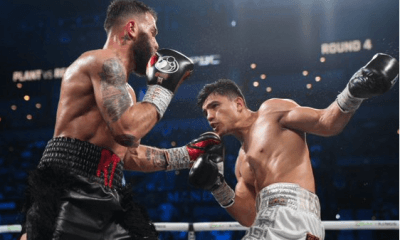
 Featured Articles4 weeks ago
Featured Articles4 weeks agoA Night of Mismatches Turns Topsy-Turvy at Mandalay Bay; Resendiz Shocks Plant
-

 Featured Articles2 weeks ago
Featured Articles2 weeks agoAvila Perspective, Chap. 330: Matchroom in New York plus the Latest on Canelo-Crawford
-

 Featured Articles1 week ago
Featured Articles1 week agoVito Mielnicki Jr Whitewashes Kamil Gardzielik Before the Home Folks in Newark
-
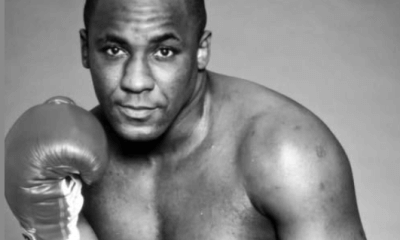
 Featured Articles4 weeks ago
Featured Articles4 weeks agoRemembering the Under-Appreciated “Body Snatcher” Mike McCallum, a Consummate Pro
-

 Featured Articles4 weeks ago
Featured Articles4 weeks agoAvila Perspective, Chap 329: Pacquiao is Back, Fabio in England and More
-

 Featured Articles3 weeks ago
Featured Articles3 weeks agoOpetaia and Nakatani Crush Overmatched Foes, Capping Off a Wild Boxing Weekend
-

 Featured Articles3 weeks ago
Featured Articles3 weeks agoFabio Wardley Comes from Behind to KO Justis Huni
-

 Featured Articles2 weeks ago
Featured Articles2 weeks agoCatching Up with Clay Moyle Who Talks About His Massive Collection of Boxing Books

